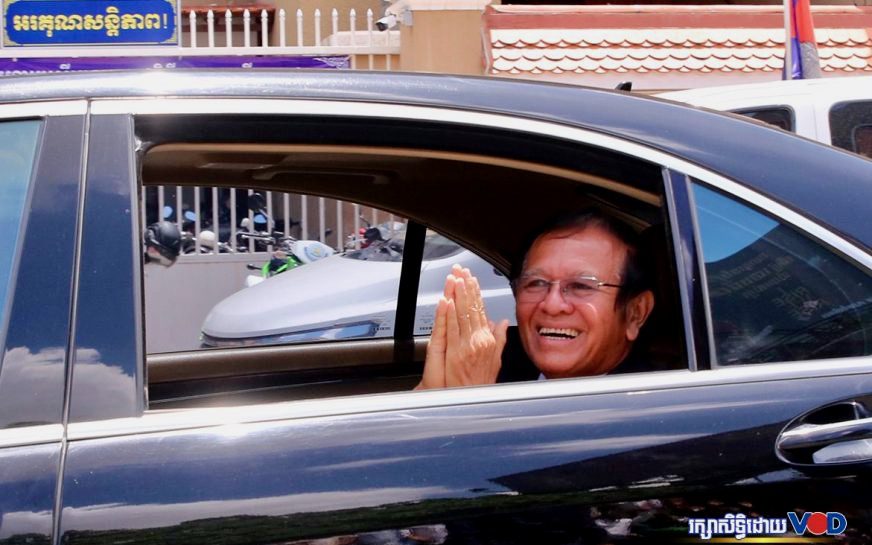Opposition leader Kem Sokha’s treason trial is getting closer to a conclusion, the presiding judge said on Wednesday a week after Sokha distanced himself from his firebrand CNRP co-founder Sam Rainsy.
Judge Koy Sao opened Wednesday’s proceedings by saying cross-examinations about public demonstrations would continue, but added that it was the last part of the case file and the trial was nearing an end.
Sokha is charged with colluding with a foreign power to overthrow the government — an accusation for which he was arrested almost five years ago in September 2017.
Amid a protracted trial with the defense consistently complaining of delays, last week Sokha strongly distanced himself from his party co-founder Rainsy.
“I have stopped having any connection with Sam Rainsy anymore. The words of Sam Rainsy and Kem Sokha as the same person no longer exist,” he said in court last week.
“If I had political rights, I would dare to have a press conference,” he added at the time, referring to his intentions to publicly denounce Rainsy. “Any bad person, please go away from me. I also thank the prosecutor that asked me about this here.”
The CNRP was formed as a merger between Sokha’s Human Rights Party and the Sam Rainsy Party, and pushed the ruling CPP to near defeat in the 2013 national election. But as the party became a threat to the CPP’s reign, it was dissolved by court order in 2017. Sokha has since spent time variously in prison, house arrest and banned from politics under court supervision, while Rainsy has lived in France and continued barbed criticisms of the government.
Prime Minister Hun Sen has repeatedly denounced Rainsy’s “incitement,” and Rainsy’s supporters have faced court action and imprisonment.
Wednesday’s trial hearing nevertheless saw more quarreling between the prosecution and defense. As prosecutors questioned Sokha over decade-old video clips of public protests, defense lawyers complained of repeated questions over old incidents.
“I see no progress,” said defense lawyer Chan Chen. “This story keeps going backward, asking what has already been asked, answering what has already been answered, and these have already been discussed in past hearings.”












